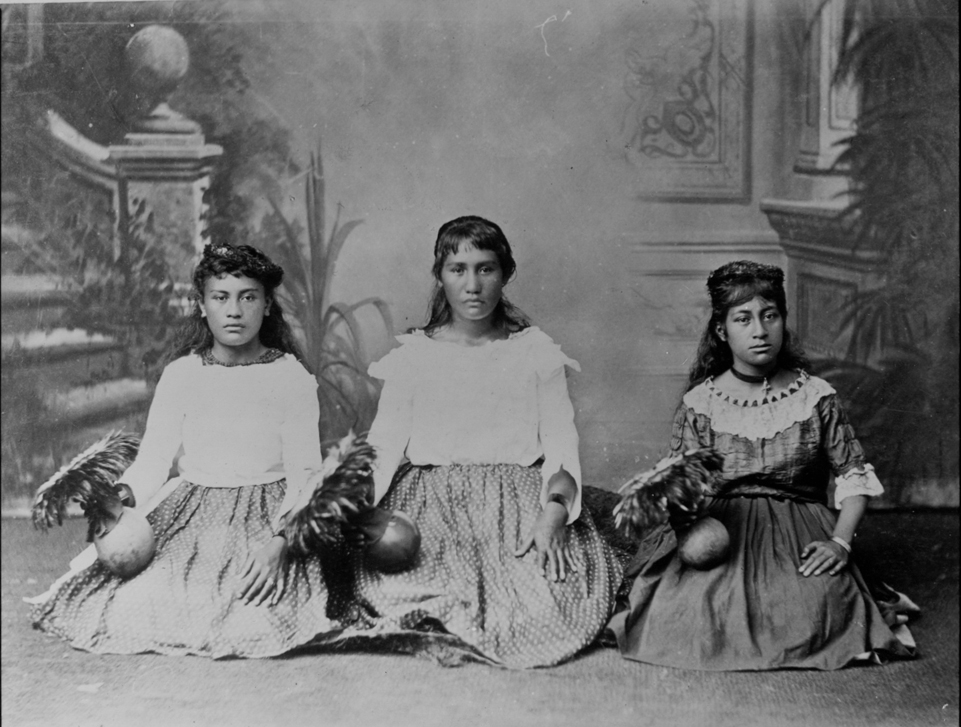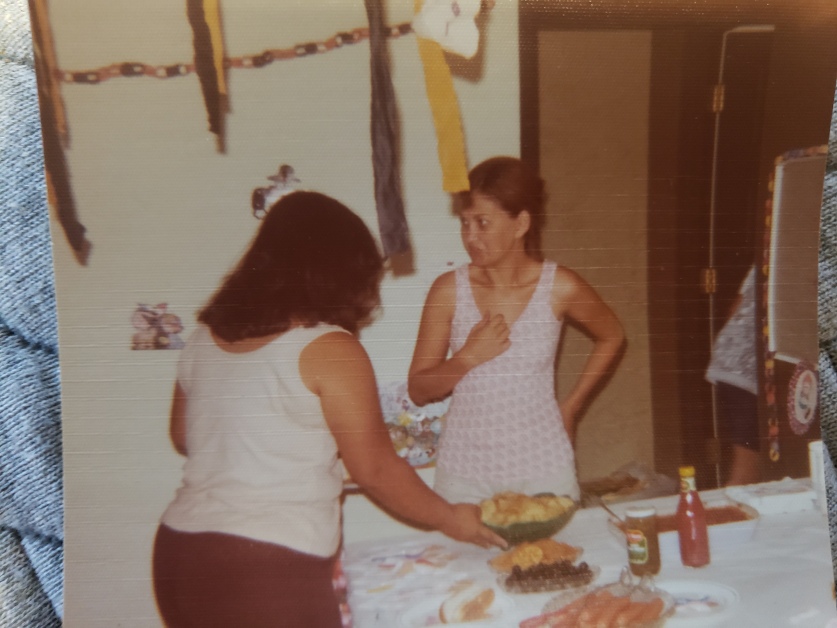I take the four-year-old to wander around while the husband finishes his little shopping spree. He needs a pair of shorts for our trip to Hawaiʻi, but a great sale at Macy’s has him picking out a few more items of hot-weather clothes . By the time I see him again (corralling the preschooler is always a feat) he is finishing up with a cheerful saleswoman behind a counter.
“Have a wonderful trip,” she says, giving me a wide smile as if we were all in on some great secret. I’m not sure why, but this strikes me as particularly amusing. As we leave the store I start ribbing my husband a little.
“Made a new friend, did you?” I ask, reaching my arm around his waist to pull him closer.
“Not really,” he says, an edge in his voice. “I’m glad you didn’t have to deal with that…person.”
“Oh?” I am curious. Ian is mostly like Mr. Bingley, determined to meet the world with an open, approving air. I mean, not that he doesn’t also get annoyed (he does drive to work after all) but for the most part he’s charming and amiable, cheering me out of my determination to find everything infuriating. Hearing the annoyance in his voice is kind of a novelty.
He relates the scene; how the saleswoman had been making comments on all of the items he was purchasing. How she quipped he must be going on some big vacation and he answered yes, he was traveling “back home” to Hawaiʻi with his wife. They traded pleasantries about beaches and paradise and other words of completely ignorable passing conversation as she removed anti-theft tags from his new clothes.
“And then she said how some folks in her family go to Hawaiʻi for weeks but she can only handle a few days because she reacts to the heat like I do,” he adds.
“Aw,” I say, patting his hip. While I am a true tropical flower, shivering and miserable through bleak Northwest winters only to blossom and glow all the livelong summer days, my husband turns into a melted puddle of aggravated goo whenever the temperature climbs above seventy. I thought maybe he and the saleswoman had bonded over his apprehension over not being able to visit with and enjoy the family we were traveling to see.
“But then,” he says, the edge coming back into his voice, “she said ‘well you know, the natives all look like leather.’”
I stop. “Wait, what?”
He reiterates. I blink.
“What did you say?” I ask as we start walking again.
“Nothing,” he confesses. “That’s right when you walked up and I was finished so I just wanted to get out of there.”
We shuffle along in the semi-silence of parents pulling a child to the mall play land. I am disappointed in my husband for not responding to such a hideous comment. I am angry at him, though I’m trying not to be.
I am uncomfortable with my disappointment, my anger, because these feelings are directed at the wrong person. I am definitely angry at the saleswoman, but my husband is the one walking right beside me. I want to shrug his arm off my shoulder but resist the urge to pull away.
Also, I don’t know what I would have liked him to say. What would I have done, had someone said that to me? I can tell you what I would have done: I would have let out one of those uncomfortable, “oh shit is this really happening” laughs and I would have wanted to get out of there. I would have walked away as quickly as I could and maybe later I would have cried tears of frustration and disappointment. I would have crawled into bed and questioned everything I ever thought about my own strength. Doubted the depths of my cultural pride.
I know, because that’s exactly what I’ve done countless times before.
“What were you thinking?” I ask. I don’t mean it in the what were you thinking for not yelling at a stranger kind of way. I mean it in the what do you wish you had said kind of way. Thankfully he takes it as such.
“I was thinking you know you’re talking about my family, right?”
“Right?” I huff. “I mean, this is just skin color. Hawaiians are, you know, actual brown people.”
He sighs. So do I.
“I wish you had said that thing you wanted to say,” I tell him after a while. “That would have been great.”
“Yeah,” he said, and I hear the sadness in his voice. I know what that kind of sadness feels like. I hate for him to feel it, too.
It’s tough, you know? Like, really really tough in those situations where you just want to get out of the store because your cooped-up child is going to pull a thousand sweaters off a table right this second, only to have someone say something horribly ignorant while giving you a friendly smile. To have someone say something not just offensive, but actually damaging and to have your brain just kind of…check out only to come back with the perfect response five minutes after you’ve walked away.
“I always want to ask people if they meant to say that out loud,” I tell him. He laughs. So do I.
“Yeah. I’m standing right here?” he offers. We laugh again. We start trading little zingers, trying to craft the perfect response to keep in pocket for the next time. Knowing there will be a next time because of course there always is.
“I really wish I was better in moments like that,” he says after a moment. “I hate feeling so useless.”
“That’s how it goes,” I shrug. It hate the way it feels to say this, but it really is the truth.
“I’m sorry,” he says quietly.
“It’s okay,” I reply. “You get used to it.”
He pulls me tight against him. “I’m even sorrier for that.”
I don’t mean to say you get used to the slights. The thoughtless insults and the rampant ignorance that makes the most ridiculous things fall out of people’s mouths. I’ve never really get accustomed to that. I hope I never do.
But what I have gotten used to is talking about it, the way my husband and I did after his exchange with that woman in Macy’s. Recognizing her remark as a sign callousness, rather than something wrong with me I needed either to repair or to hide. Recognizing my shocked silence as exactly what it is: utter disbelief that this strange, hurtful thing is actually happening.
I’ve been having encounters like this regularly for the past twenty years and I haven’t once been able to muster the perfect response. It always stings, but at least these days I’ve stopped trying to pretend it doesn’t. I recognize this hurt as a valid response to something hurtful and I don’t chastise myself anymore for being tongue-tied in the moment. Or for getting mad about it.
I’m mad all the time. Of course I am. I’ve had to awkwardly laugh my way through surviving far worse things than being told my people look like leather. Maybe that’s why I could never be like Mr. Bingley, happy and jovial and approving of all the world around me; it hasn’t offered me the same kind of consideration. As a straight white dude from Texas, my husband has been given many societal considerations. Is able to be my Mr. Bingley.
I used to be so envious of his lightheartedness. It made view the contrast of my savage fury, my dark anguish, as something shameful and wrong with me. Watching my husband prickle under that saleswoman’s microaggression, the way it changed his entire demeanor as we walked through the mall, I realize of course a human being will react like this. Of course this has affected my demeanor all these years.
Finally I recall the vehemence with which he said the words my family. I understand he doesn’t just mean me, or our children. He means my cousins, my aunts, my kūpuna. He means all of us.
This is the first time I see my husband include himself so wholly in my Hawaiian family. The first time I hear him take a slight like this as if it affects him, because it does. After years of uncomfortably watching his ambiguously ethnic wife wrestle with her cultural reawakening, this has at last become what we like to call in Hawaiʻi, a kākou thing. Instead of me being angry on a deeply personal level and him being angry in alliance, we are angry at that saleswoman together. Maybe this moment doesn’t exactly require a parade, but it does deserve acknowledgement. I kiss his shoulder, and in turn he kisses the top of my head. It doesn’t seem like enough, but it’ll have to do.
We make it to the play land and sit on cushioned benches while our daughter takes off her shoes. He puts his arm around me and pulls me tight against his shoulder.
“Thank you for talking me through this,” he says. I squeeze his hand.
“That’s how it goes,” I tell him. I like the way this one feels much, much better.




So different when I went to my ancestral home for a visit. Me, a very white Hawaiian, walks into a tourist shop in Kihei to buy souvenirs. The shop lady approaches me and asks me what I’m doing on Maui. I tell her about my ohana, where we come from, where we are buried on this island. She pulls a kukui nut lei off the shelf and places it around my neck. Two kisses follow. And them “E Komo Mai”.
That is an incredibly moving story, Deb. Being welcomed home is so significant, especially when we might have some hang-ups about belonging. I am so impressed with that shopkeeper. She is doing something very, very right. But, hey, it’s not exactly surprising. We Hawaiians do know about kākou – that we have to stick together and build each other up.
That woman was incredibly rude.
I haven’t had this exact experience, but I’ve definitely had the moments where someone has something terrible about my race to me and then said, “but you’re not that kind of black.” And swallowing my tongue. It’s an awful feeling.
Oh my goodness, yes. What they’re really saying is that we’re actually human, and they’re kind of surprised by that.